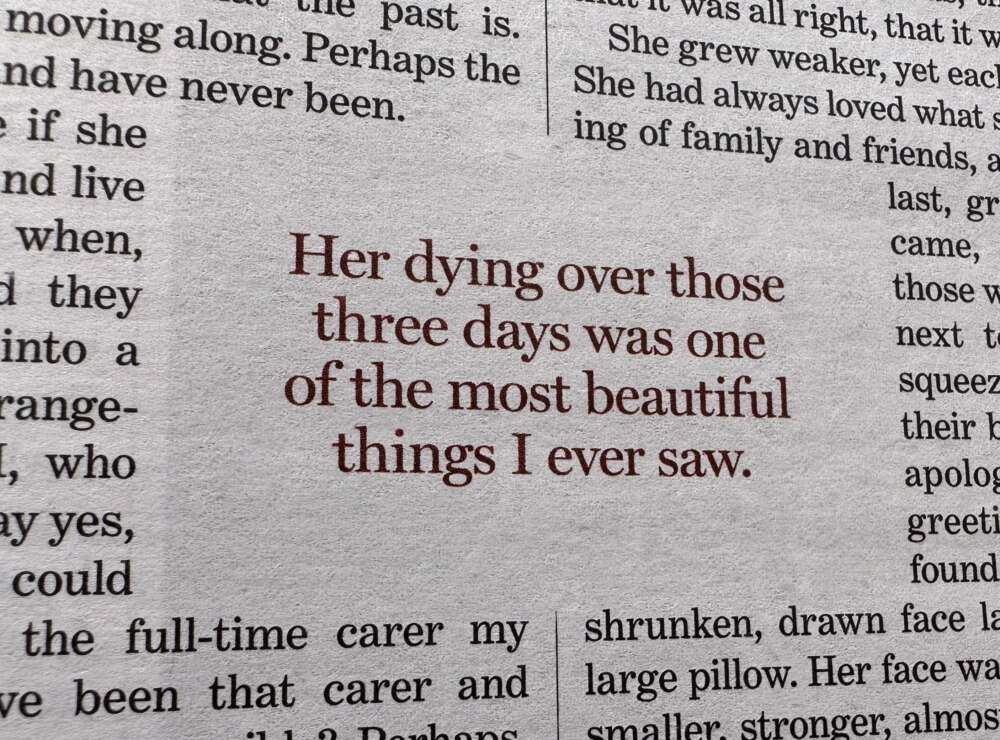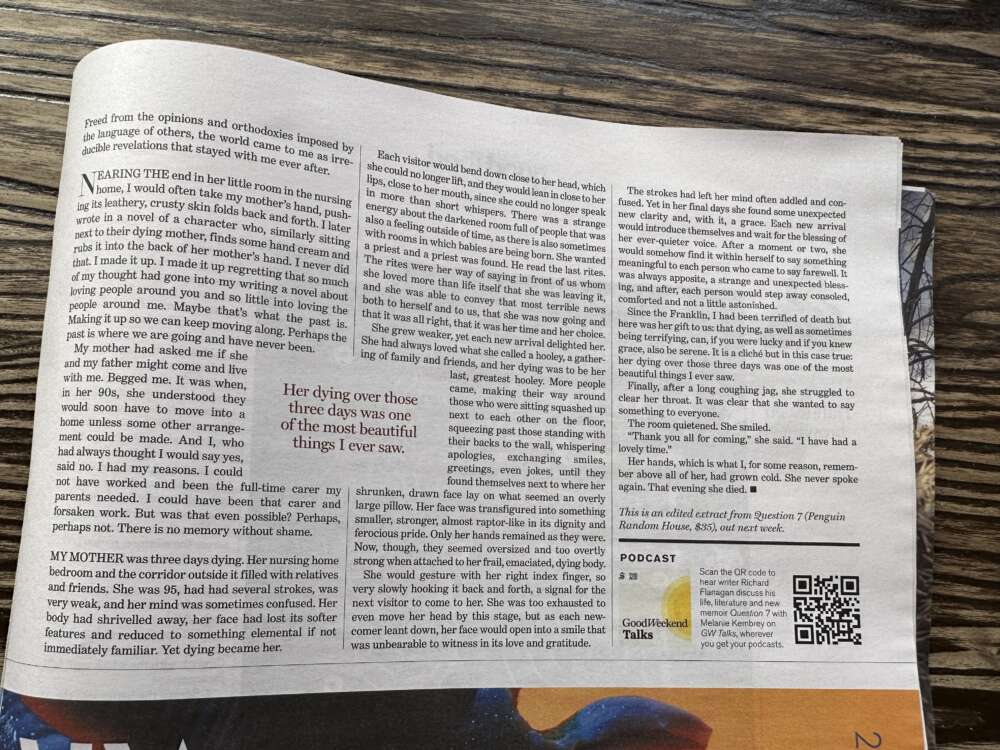
‘A beautiful death’ is an expression few of us feel we have permission to use. Yet writer Richard Flanagan has done just that. Can we say this too?
Richard is a Tasmanian author who’s won the Booker Prize, one of the world’s leading prizes for fiction writing. His snippet about the death of his mother, from his latest book “Question Seven” was published in an extract in the Fairfax Press’ Good Weekend on Saturday October 27.
In that piece, he describes her death this way: “It is a cliche but in this case true: her dying over those three days was one of the most beautiful things I ever saw.”
He’s lucky to feel it as a cliche, a phrase overused. Because many don’t believe they have permission to say this or even think it.
When you meet people who wants to talk about a death they’ve experienced as beautiful, so often they qualify it with “I shouldn’t say this, but….” So it’s so good to have a well-known writer validate this possibility.
To die alone or not alone?
Flanagan expresses some ideas very familiar to those who’ve been at vigil with someone dying: “Yet in her final days she found some unexpected new clarity and, with it, a grace.” So often, we see the person with dementia become focused, or the person who’s been apparently unconcsious, now wakeful.
In some of Good Grief’s Understand Death Better talks, I’ve shared the results of our continuing survey which show that almost a quarter of the people questioned are afraid of dying alone.
Sometimes that raises debate, with people pointing out that, for example, their parent or partner seemed to choose to die alone, slipping away when no-one was present – while they’d gone to grab a cup of tea or have a shower.
This is such a common scenario that it’s well document in ‘death literature’.
Should these people feel guilty about having gathered for what could almost be described as a party? I don’t think so.
To die alone after being surrounded by people who love you, does not mean those final connections were unwanted. When people die alone, privately, after that type of send-off, we can say we’ve given them both options, to die with someone or alone. And that expression of love feels satisfying.
What feels cold is when someone dies, with strangers attending to them, maybe hospital staff, but having had no visitors, no comfort, no one holding their hand, no human touch as they confronted their end – a scenario which is surprisingly common.
Before her beautiful death, she would gesture
In the Good Weekend excerpt, we don’t see Richard use his mother’s first name, Helen. That’s left to the photograph captioners. Maybe that’s his personal way of honouring her, in this excerpt laden with writerly anecdotes.
Instead, where others would use her first name to identify her, he draws her singularity out by writing about her hands and the role they played in her connection to him during her life and the people surrounding her in the extraordinary gatherings as she died.
And so he captures the essence of a beautiful death.

Question Seven, by Richard Flanagan is to be released on 31 October.
Find it at Booktoptia at: https://www.booktopia.com.au/question-7-richard-flanagan/ebook/9781761343469.html
To read more stories of death bed experiences and observations, go to:
Support can enhance the end. Petrea King knows about this.
But why do some people miss out on a pain free death, when all the settings seem right?
